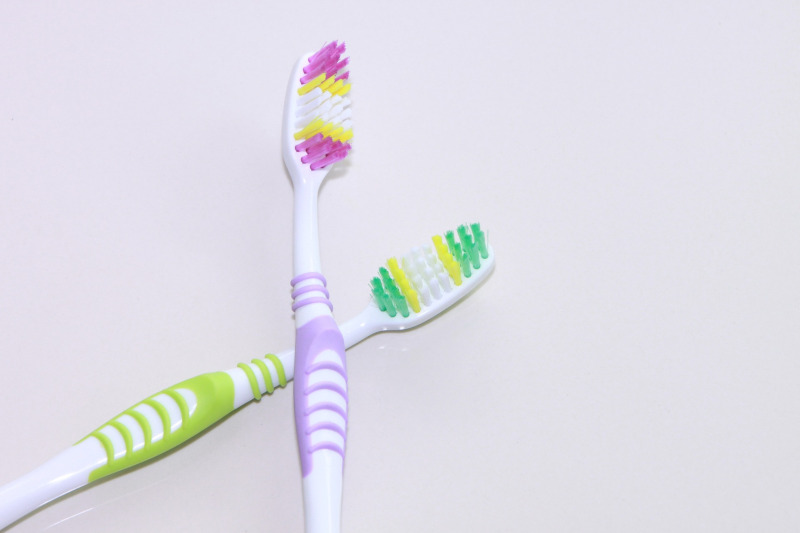Everyone knows that brushing your teeth is an important part of the daily bathroom routine, and you need a toothbrush and paste to do that effectively. With a mind-boggling array of toothbrushes available, however, how do you know you are choosing the right toothbrush to use?
Toothbrushes are widely available today, in supermarkets, pharmacies and even in the local service station shop! As a general rule of thumb, unless your toothbrush is showing obvious signs of wear, you should consider changing it every three months or so.
It is also wise to consider changing your toothbrush after having a cold or flu virus, as the bristles can store bacteria, which in some cases can lead to reinfection.
How do you go about choosing the right toothbrush for you when there is so much choice?
Many people don’t realise that it is important to select the right toothbrush to suit your teeth and gums. Some of us will apply a simple strategy, such as the colour of the toothbrush, the grip style or the head shape that is most attractive. Cost can come into the fore too, and it can often be tempting to buy a cheap toothbrush, or a multipack for the whole family to save on the expense.
Although there is nothing wrong with applying these strategies to your next toothbrush shop, you should bear in mind that some types of toothbrush may not be suitable for your teeth and gums, particularly if you have any dental issues going on, such as overbite, overcrowding or problems with the wisdom teeth. You may have sensitive teeth, or struggle with plaque retention which will determine your personal needs to apply to your choice of brush.
We have put together a few tips that you could apply to shopping for your next toothbrush:
Ask your dentist for advice – dental professionals are by far the best to ask for advice. Your own dentist will know what type of toothbrush you should be using and can recommend some attributes to look for.
Here at Dental Excel, our general dentistry services include helping our patients to establish a good dental routine, and we can advise you in choosing the right toothbrush for your own particular needs.
Bristle texture – hard, medium or soft?
Toothbrush bristles typically fall into three texture categories – hard – medium – soft. For most people, soft bristles are the right choice. This depends upon how vigorous you are when you brush, but hard bristles could damage the soft gingival tissues of the mouth if you are a vigorous brusher, and cause sensitivity.
Soft bristles are generally the safest and most comfortable to use, and should always be selected for children.
Head size and shape
Again, there is a huge range of toothbrush head sizes and types on the market. Choosing the right size and type is a personal thing, but as a general suggestion, the toothbrush head should fit comfortably in the mouth and be able to reach all the teeth.
Some modern toothbrushes have longer bristles located at the front of the head to enable easier cleaning of the back teeth, and some also have a rubber, grooved plate on the back of the head to make cleaning the tongue an integral part of the brushing process. These are useful additions to the toothbrush, but not always a necessity, particularly if you already have a good technique for reaching the back of the molars.
Children’s teeth require much smaller heads for clear reasons. They also need soft bristles to avoid damaging baby tooth enamel and the gums. Most manufacturers produce toothbrushes specifically for children and babies.
Handle
The handle of the toothbrush should be a comfortable length for you to hold firmly without it slipping. If you struggle holding your toothbrush, think about one with a rubberised handle to limit the chance of it slipping.
Cost
Although cost can often be a relevant factor, it does make sense to buy a well-branded toothbrush by a manufacturer that understands the importance of the toothbrush design. Buying the best that you can reasonably afford is probably the best way to go.
Our teeth can last a lifetime if properly cared for and monitored by regular check-ups at the dentist. Your dentist will always be the best person to recommend options for you when you are next ready for choosing the right toothbrush.

